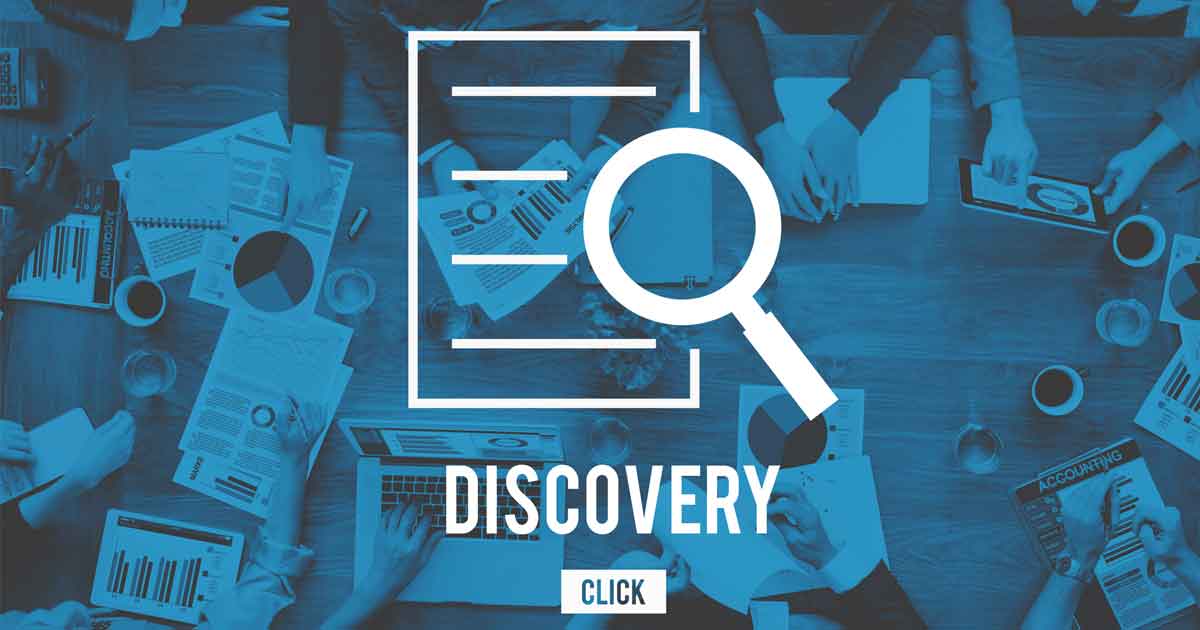In the digital age, information is a valuable asset, and managing it efficiently is crucial. This is where eDiscovery, short for electronic discovery, plays a pivotal role. eDiscovery refers to the process of collecting, preserving, and analyzing electronic information for legal purposes. In this guide, we’ll explore what eDiscovery is, how it works, and why it’s essential in today’s legal landscape.
What is eDiscovery?
eDiscovery services encompass a wide range of electronic data, including emails, documents, databases, social media posts, chat communications and more. It is primarily used in legal proceedings to gather evidence, investigate claims, and ensure compliance with legal requirements. Here are the key components of eDiscovery:
- Data Preservation: It’s important that any potentially relevant information is preserved as soon as legal or regulatory proceedings are anticipated.
- Data Mapping and Collection: The first step in eDiscovery involves identifying and collecting electronic data relevant to a case. This data can be scattered across various devices and platforms, making it essential to use specialized tools to retrieve it accurately.
- Processing: Raw data is often unstructured and may contain duplicates. Processing involves converting this data into a more manageable format by running optical character recognition (0CR) in turn making the documents text searchable, eliminating duplicates, and indexing the metadata for easy search.
Key data sources and/or custodians can be prioritized and their data made available first. Additional filters can be deployed during the processing stage for instance search terms, file type and date ranges.
- Review: Legal professionals, including lawyers and paralegals and expertsreview the processed data to determine its relevance to the case. This step is critical for identifying key pieces of evidence.
- Analysis: Data analysis tools and software are employed to gain insights from the collected information. Outside of searching for specific keywords or metadata, analytical tools such as email threading, near similar, predictive coding and clustering can assist in identifying patterns, anomalies and themes.
- Production: Relevant data is then produced to opposing parties or authorities, as required by the legal process. It must be presented in a format that complies with legal standards.
- Presentation: In court, the discovered electronic evidence is presented to support arguments, establish facts, or refute claims. This can include displaying emails, documents, or other digital records.
Why eDiscovery Matters
eDiscovery is essential for several reasons:
- Efficiency: Traditional paper-based discovery methods are time-consuming and cumbersome. eDiscovery streamlines the process, enhances the ability for teams to collaborate remotely, making it faster and more efficient.
- Due to the exponential increase in the number of documents being created and shared, there is no real means to manually review each document that is potentially relevant to a case
- Cost Savings: Electronic data is easier to automatically cull, manage and search through, reducing the cost associated with manual document review.
- Accuracy: Digital evidence is less prone to errors and can be easily validated, enhancing the accuracy of legal proceedings.
- Accessibility: eDiscovery allows legal teams to access and review vast amounts of data from anywhere, facilitating remote collaboration.
Unlocking the Potential of eDiscovery: Real-World Applications
In recent years, the volume of electronic data has exploded, making eDiscovery an indispensable tool for lawyers, businesses, and government agencies. Here’s how eDiscovery can be applied in various scenarios:
- Litigation: eDiscovery is commonly used in civil litigation to gather evidence, assess the strength of a case, and prepare for trial. Lawyers can search through emails, documents, and other electronic records to build a compelling argument.
- Regulatory Compliance: Many industries, such as healthcare and finance, are subject to strict regulations regarding data retention and disclosure. eDiscovery helps organizations comply with these regulations by ensuring the timely retrieval of electronic records.
- Internal Investigations: Businesses may use eDiscovery to investigate employee misconduct, fraud, or other internal issues. It allows them to uncover evidence of wrongdoing within their own digital infrastructure.
- Intellectual Property Protection: Companies can use eDiscovery to protect their intellectual property, such as patents, trademarks, and copyrights. It helps identify instances of infringement and gather evidence for legal action.
- Criminal Cases: Law enforcement agencies rely on eDiscovery to collect digital evidence in criminal investigations. This can include data from computers, smartphones, and online platforms, which can be crucial in solving crimes.
The eDiscovery Advantage
It’s essential to recognize the immense advantages eDiscovery services offer in today’s data-driven legal landscape. From expediting legal processes to ensuring compliance with regulations, eDiscovery has become an indispensable tool for lawyers, businesses, and government agencies alike. Embracing eDiscovery not only enhances efficiency but also empowers individuals and organizations to navigate the complex web of electronic information with confidence.
Incorporating eDiscovery into your legal strategy can save time, reduce costs, and improve the overall quality of legal outcomes. Whether you’re a legal professional looking to streamline your practice or a business seeking to protect your interests, eDiscovery is the key to unlocking the potential of electronic data in a legal context.
As the digital age continues to evolve, eDiscovery will remain at the forefront of legal technology, shaping the way we approach and resolve legal matters. So, embrace the power of eDiscovery, and let it guide you through the ever-expanding world of electronic information. Your legal journey will be more efficient, accurate, and successful for it.


